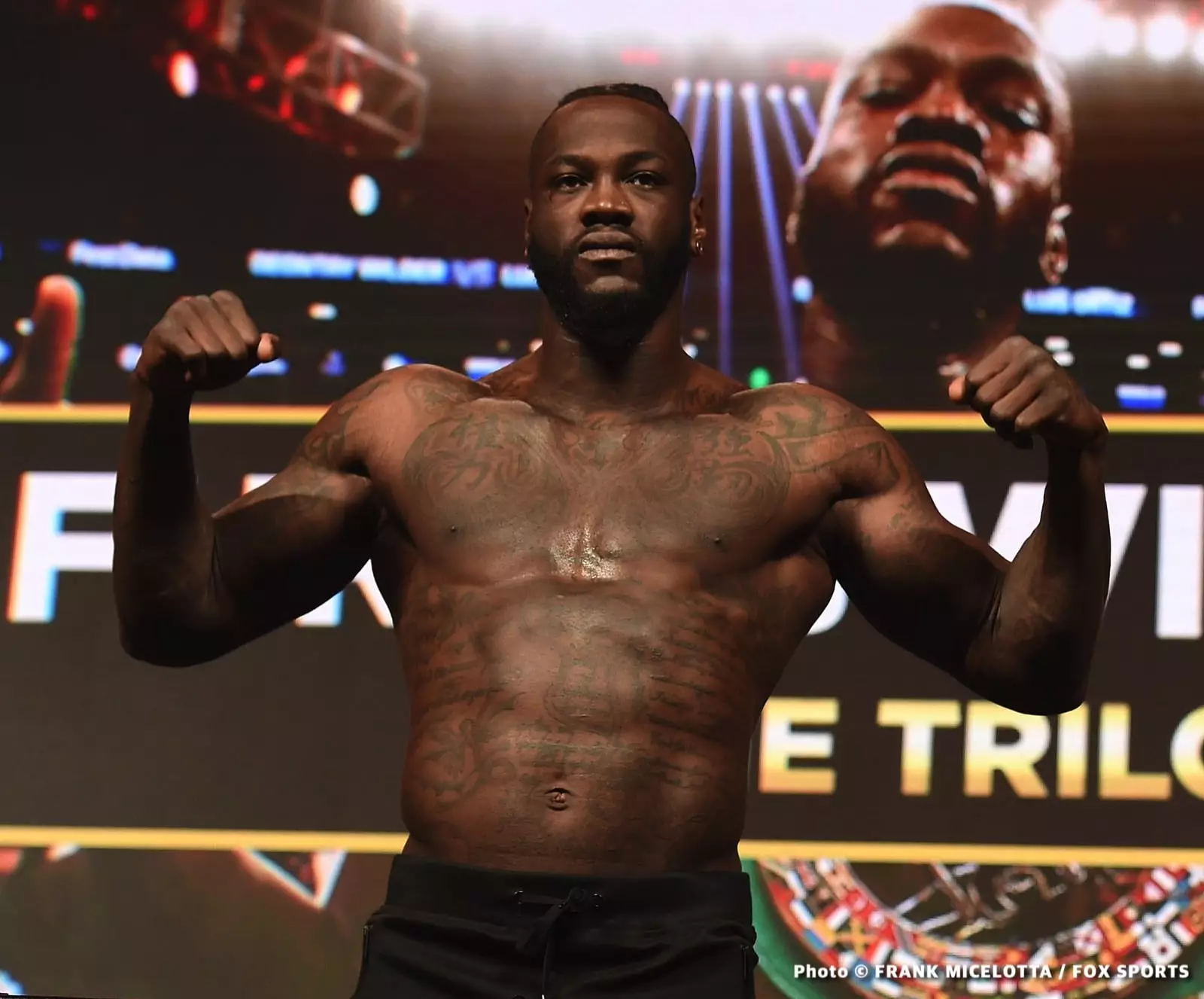Deontay Wilder, a name synonymous with power and excitement in the boxing world, is set to make his return to the ring on June 27 in Wichita, Kansas. Facing Tyrrell Herndon, a relatively unknown contender with a record of 24-5 (15 KOs), Wilder aims to prove that he still possesses the explosive knockout power that once earned him a reputation as one of history’s hardest hitters. His bold proclamation of “dropping bombs” captures both his confidence and determination to reclaim his status in the heavyweight division.
Wilder, with a fight record of 43-4-1 (42 KOs), is fully aware of the stakes involved in this bout. He feels the weight of expectation not just to win, but to do so decisively. Claiming, “The party is coming to Wichita,” he embraces the idea of not just being a fighter but also a thrilling entertainer. Yet, beneath this bravado lies an intense pressure; fans and critics alike are eager to see if Wilder can still deliver fireworks after recent disappointing performances against Joseph Parker and Zhilei Zhang.
The Challenge of Redemption
The crux of Wilder’s upcoming match is more than just a return; it’s a quest for redemption. For a fighter who once commanded the heavyweight landscape with devastating knockouts, his last two bouts raised questions about his current capabilities. In both matches, Wilder’s celebrated power appeared muted, leaving many wonderstruck about whether “the Bronze Bomber” remains a force to be reckoned with. His declaration that he is the “hardest hitter in boxing history” sounds almost defensive in light of his recent setbacks.
However, the narrative of the “fallen champion” returning to glory could also motivate Wilder. The psychological warfare at play is palpable—if he can demolish Herndon in emphatic fashion, it would not only silence doubters but also solidify his legacy as one of the sport’s great knockout artists. This pressure transforms the match into a pivotal moment: it is about personal vindication as much as it is about victory.
The Underdog’s Fight for Legacy
On the flip side of this matchup is Tyrrell Herndon, who, despite being a significant underdog, comes into the fight with nothing to lose. Herndon has been training rigorously, knowing that a win against Wilder would catapult him into the limelight, potentially leading to bigger and more lucrative opportunities. His motivation to seize this moment could translate into an unpredictable energy in the ring.
While most will surely back Wilder, there are whispers of how motivated Herndon can be when the stakes are high. He may not be as well-known, but the hunger for glory often outshines the spotlight of fame. Wilder might face an uphill battle not only against Herndon’s will but also against his own vulnerabilities, particularly if he carries the mental scars from previous defeats.
Wilder’s Legacy on the Line
In the world of professional boxing, narratives are often as significant as the bouts themselves. Deontay Wilder stands at a crossroads, teetering between a glorious comeback filled with promise and the potential obscurity of an athlete who couldn’t adapt. As he steps into the ring, the question isn’t just whether he can reclaim his former glory but whether he can redefine himself as a fighter who learns and grows from his challenges. In the ever-unpredictable realm of boxing, this fight could very well be the defining moment of his career, for better or worse.

